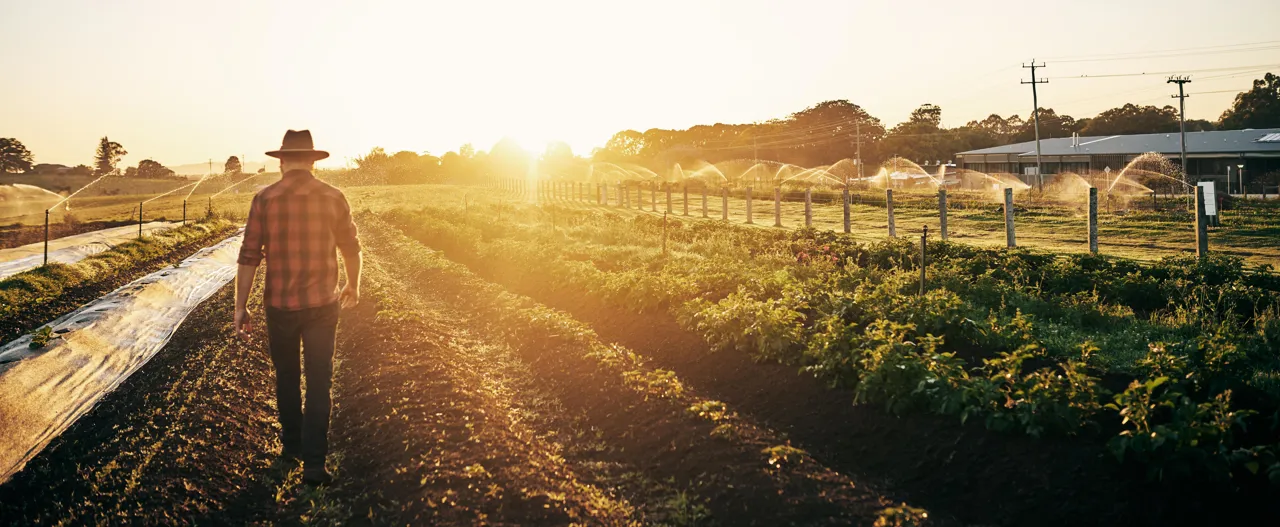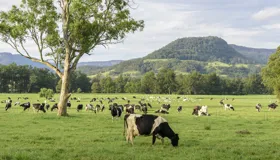
Science-led sustainability transforms Australian farmland
Transforming farms by optimising land use and embedding environmental plantings carbon project
The Transforming Farming Platform, backed by the CEFC and leading Dutch asset manager Kempen, is focused on purchasing and improving the productivity and resilience of farms using data-driven practices and expert advice from leading agronomic and environmental advisers.
$75m
CEFC investment
Highest
and best land use
~20,000 ha
mixed farmland
As agricultural asset managers for institutions there is complete transparency in our financial performance. What is ground-breaking here is that we have embedded the same accountability in the delivery of soil carbon, carbon in vegetation, emission reduction, biodiversity and other sustainability measures.Bradley WheatonPortfolio Manager, Gunn Agri
Our investment
The $150 million Transforming Farming Platform is a science-led sustainable farming initiative managed by Gunn Agri Partners, an Australian-based specialist agricultural asset manager.
Established in 2021, the Transforming Farming Platform manages some 20,000 hectares of mixed-use farmland in New South Wales and South Australia. It uses regenerative and improved land management techniques to optimise yield productivity, reduce carbon emissions and maximize carbon sequestration from the land.
The CEFC made a $50 million cornerstone investment in the Transforming Farming Platform, alongside leading Dutch asset manager Kempen, in 2021.
Both parties increased their equity investment by a further $25 million in April 2025 to support the integration of large-scale environmental plantings carbon projects into the platform’s overall farming strategy. These projects have the potential to sequester ~360,000 tonnes of CO2-e over 25 years.
our impact
Investing across Australian natural capital
The CEFC is an active investor in natural capital, convening capital and establishing and promoting best-practice initiatives. The CEFC investments reflect the complexity and urgency of improving the sustainability and competitiveness of Australian agriculture, in conjunction with measures that regenerate and enhance land, water, and biodiversity.
Smaller-scale, mixed-use Australian farms can reap considerable benefits by using data-backed best practice farming techniques to increase profitability and productivity, while cutting their carbon footprint.
Optimising productivity while sequestering carbon
The manager Gunn Agri Partners uses an integrated farming model that has the potential to improve energy efficiency on farms and optimise production, soil carbon, biodiversity, and other environmental outcomes.
The rapid growth of the Transforming Farming Platform demonstrates how a focused approach to regenerating farming practices can deliver positive outcomes for farmers, agriculture, emissions reduction, and local landscapes.
In 2025, the Transforming Farming Platform consisted of four aggregations across three different climatic zones:
- The Watermark, Gunnedah, NSW
- Gragin, Inverell, NSW
- Rocky Creek, Glen Innes, NSW
- Colebatch, Tintinara, SA.
The initial Environmental Plantings carbon project is expected to extend across more than 1,000 hectares at the Gragin aggregation, with the potential to generate ~360,000 Australian Carbon Credit Units over 25 years.
The diversification into Environmental Plantings provides a new revenue stream for the aggregation, through the sale of Australian Carbon Credit Units (ACCUs).





